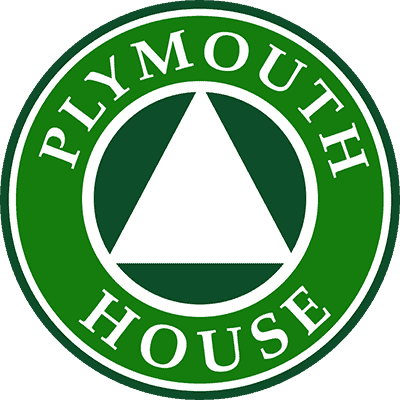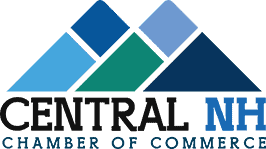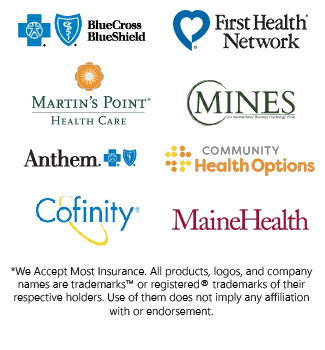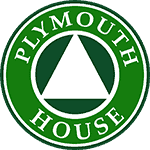What We Treat
Painkiller Addiction
Painkiller Addiction
Are you looking for painkiller addiction treatment for yourself or for a loved one?
At the Plymouth House we know just how devastating painkiller addiction can be. Every year, millions of men and women struggle with painkiller addiction, and many of these men and women lose their lives to prescription painkiller overdose. According to the Centers for Disease Control and Prevention, 247,000 men and women lost their lives from 1999 to 2019 as a direct result of painkiller overdose. Over this period of time the number of painkiller overdose deaths more than quadrupled.
But… There is hope! At the Plymouth House we combine the 12-Step method of addiction recovery with intensive therapy and holistic treatment options in order to consistently deliver highly individualized and effective treatment. Regardless of how severe a painkiller addiction has become, recovery is always possible with the right set of tools in place. To learn more about The Plymouth House experience, or to begin your journey of healing, contact us today.
More About Painkiller Addiction
Painkillers are a type of prescription medication most commonly used for the treatment of mild, moderate or severe pain. The most commonly prescribed painkillers include oxycodone, hydrocodone, codeine and morphine. Fentanyl is a synthetic painkiller, and because of its potency it is generally reserved for severe, acute pain, and is only prescribed when other painkillers are rendered ineffective. Rates of painkiller abuse and dependence began to skyrocket in the mid-1990s, when pharmaceutical companies began pushing these medications, claiming that they were safe to use and resulted in no serious side effects or health-related complications. It was soon discovered, however, that these medications did result in severe side effects, including physical and psychological dependence.
The most frequently abused painkillers and their side effects include:
Codeine – This prescription painkiller is either injected or taken orally (swallowed). Codeine has a lower risk of respiratory depression, sedation and analgesia than morphine, but it can still be habit-forming. This prescription painkiller is naturally derived (along with morphine).
Morphine – This prescription painkiller can be administered orally or intravenously, though some people do smoke morphine and combine it with other chemical substances. Morphine is naturally derived and it has a high potential for abuse. Some common side effects associated with morphine include pain relief, dizziness, drowsiness, dry mouth, profuse sweating, itchy skin, respiratory depression, lack of coordination, confusion, and when taken in excessive amounts, coma and death.
Methadone – This prescription opioid is typically taken orally, though it can also be administered intravenously. Methadone is used as a Medication Assisted Treatment option for people struggling with moderate or severe opioid abuse disorders, though it can be addictive and lead to overdose when abused. There are now several other MAT options that are more effective and safer to use (naltrexone and buprenorphine).
Fentanyl and other synthetic opioids – Fentanyl is between 80 and 100 times more potent than morphine, and it is injected, smoked or snorted (when it is being abused). Not only are fentanyl and its analogs extremely addictive, but they are responsible for the majority of opioid-related overdose deaths in the country. Many drug dealers use fentanyl to increase the potency and street value of illegal drugs like cocaine and heroin.
Other Painkillers – Other painkillers inlcude oxycodone, hydrocodone, oxymorphone, meperidine and propoxyphene. These medications are highly addictive and widely prescribed. Many people who begin abusing this type of prescription painkiller eventually transition to heroin because it is more accessible and affordable.
We Are Here For You
Let Us Help You Heal
Our Drug & Alcohol recovery services are second to none.
Learn how we can help by speaking with one of our Treatment Advisors today.
Painkiller Addiction
Signs & Symptoms
Signs & Symptoms
Signs and symptoms of prescription painkiller addiction include:
- Using a higher dose of the medication for a longer period of time than intended
- Continuing to use prescription painkillers despite related consequences
- A lack of motivation to participate in activities that were previously enjoyed
- Developing a tolerance, meaning a higher dose is required in order for the same results to be produced
- Experiencing withdrawal symptoms when use is stopped suddenly
- Foregoing personal obligations for prescription opioid use
Our Drug & Alcohol Treatment Services Include
Painkiller Addiction
Treatment Options
Treatment Options
There are several effective options available when it comes to the treatment of prescription opioid abuse and addiction. At the Plymouth House we take a comprehensive, whole-person approach to recovery.
We utilize:
A 12-Step approach to painkiller addiction recovery. Our guests are paired up with an experienced 12-Step Contact who walks them through the steps and teaches them about the importance of continuing along with meetings and sponsorship once treatment concludes.
Intensive behavioral therapy – Guests have access to individual therapy, group therapy and family therapy. Guests uncover what underlying factors lead to the development of substance abuse and dependence, and they learn to work through personal triggers that might otherwise lead to relapse.
Holistic approaches to addiction treatment – At the Plymouth house we focus on physical, mental, emotional and spiritual recovery. Our guests have access to yoga therapy, guided meditation, recreational activities, nutrition counseling and a gym.
Ready To Begin Your Drug & Alcohol Treatment?
We Offer A Safe & Effective Program
Don’t let Drug & Alcohol addiction control your life.
Call us today and let’s get you started on the path to a better you.
The Plymouth House Approach to Recovery
We understand how devastating painkiller addiction can be, and we know that when you or your loved one is in the throes of active addiction, envisioning a life free from all chemical substances might seem nothing short of impossible. At The Plymouth House we know firsthand that recovery is possible no matter how far down the scale you have gone. We have developed a unique and highly effective painkiller addiction recovery program that we believe in wholeheartedly.
When you arrive at The Plymouth House, you’ll quickly see that we are not a typical treatment facility. Nestled in the foothills of The White Mountains of New Hampshire, the Plymouth House provides each and every guest with a safe, serene and comfortable environment to overcome their painkiller addiction and recover once and for all.
As a guest at The Plymouth House you will:
- Learn about and become part of the recovery community.
- Learn about the 12 Steps as well as the principles and practices developed by the founders of Alcoholics Anonymous.
- Undergo intensive individual and group therapy sessions, facilitated by a team of licensed, accredited and highly experienced on-staff therapists.
- Learn how to have fun in recovery while developing and bolstering healthy friendships with other sober men or women.
- Develop the skills necessary to stay sober for years to come.
- Move rapidly and confidently into recovery.
Begin Healing Now!
Have A Call With One Of Our Treatment Advisors
Don’t Suffer Any Longer
Begin Your Recovery Journey
We understand that beginning your recovery journey can seem overwhelming at first, which is why we are available to walk you through every stage of the early recovery process. Our experienced team of Treatment Advisors will personally work with you from your initial contact until the day that you arrive at The Plymouth House. We know that in most cases guests and their families have a myriad of questions regarding available treatment options, coverage options, our facilities and additional admissions details. With one phone call we will assist families and individuals in making the right choices for their situation. Contact us 24 hours a day. We are here for you.
Get Started Now
Give us a call 24/7
(888) 693-1927
















